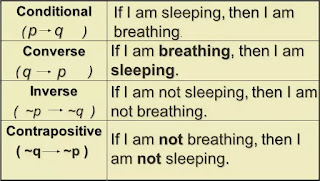A mathematical proof is an inferential argument for a mathematical statement, showing that the stated assumptions logically guarantee the conclusion. The argument may use other previously established statements, such as theorems; but every proof can, in principle, be constructed using only certain basic or original assumptions known as axioms,[2][3][4]along with accepted rules of inference. Proofs are examples of exhaustive deductive reasoning or exhaustive inductive reasoning which establish logical certainty, and are distinguished from empirical arguments or non-exhaustive inductive reasoning which establish "reasonable expectation". Enumerating many confirmatory cases is not enough for a proof, which must demonstrate that the statement is always true (occasionally by listing all possible cases and showing that it holds in each). An unproven proposition that is believed to be true is known as a conjecture.
Proofs employ logic expressed in mathematical symbols, along with some amount of natural language which usually admits some ambiguity. The vast majority of proofs in written mathematics can be considered as applications of rigorous informal logic. Purely formal proofs, written in symbolic language instead of natural language, are considered in proof theory. The distinction between formal and informal proofs has led to much examination of current and historical mathematical practice, quasi-empiricism in mathematics, and so-called folk mathematics (in both senses of that term). The philosophy of mathematics is concerned with the role of language and logic in proofs, and mathematics as a language.
===============================================================================
NOW IF YOU ARE SOLVING
BEST REVISION BOOK OF MATHEMATICS BY ER. SHAMBHU KUMAR BELOW LINK MAY BE USEFUL TO YOU.

No comments:
Post a Comment